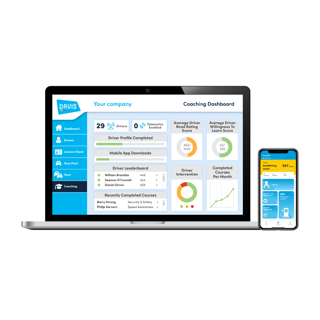By Paul Hollick, chair of the Association of Fleet Professionals (AFP)
Each year, the Association of Fleet Professionals (AFP) produces a ‘State of the Nation’ piece, highlighting the key issues that are facing vehicle operators right now.
For 2025, we believe these are the nine most pressing, together with our ideas for tackling them.
1. Maintaining momentum in the electric car revolution
What has been achieved over the last few years in the electrification of company cars has been nothing short of spectacular.
The default company car choice is now probably an electric vehicle (EV), and one that is probably being used with few or no operational compromises.
However, there are issues around electrification that need resolving. Many of these – such as the zero emission vehicle (ZEV) Mandate, better charging infrastructure and a better functioning used car sector – are detailed elsewhere in this article but two areas where we would like to see developments include greater availability of lower-cost EV options and filling in gaps around the types of models that are being brought to market.
Some progress looks as though it will be made in 2025, with a greater number of models arriving that are suitable for fleet use in the £20,000-£30,000 bracket, widening the appeal of EVs to more employees and bringing lower whole life costs.
The second is more difficult, with an almost complete absence of electric pick-ups and offroad 4x4s, and few practical choices on the horizon.
For some major fleets, such as utilities companies, this represents a genuine stumbling block to achieving zero emissions.
2. The future of the ZEV Mandate
The Government consultation on the ZEV mandate is now underway and there appears to be recognition at the highest level that the current strategy is placing too much pressure on manufacturers, creating a mismatch between supply and demand.
This is especially the case in the van market, where electric sales are low and largely flatlining thanks to widespread doubt about the viability of these vehicles for everyday applications.
Most of the ideas we have seen reported in the press that are apparently being considered by the Government – such as allowing hybrids to stay on sale until 2035 – probably don’t go far enough but we remain optimistic that genuine improvements can be identified.
The changes made will influence the vehicle choices made by fleets for at least the next decade and the AFP is taking an active part in the consultation.
3. Rethinking zero emissions for vans
This is something of a simplification but the fleet industry reception to electric vans has been largely split between major fleets who have a corporate commitment to zero emissions and adopt them despite their potential shortcomings, and a much larger cohort who look at the perceived range and payload compromises, then decide to stay with diesel.
By 2027 – just two years away – the ZEV Mandate states that more than a third of van sales need to be zero emissions so clearly, something must change.
Our thoughts on this are included in the Van Plan that we created in 2024 with the British Vehicle Rental and Leasing Association and others.
Essentially, a complete rethink is needed at a government level, including a solution to the long-running 4.25 tonne van issue.
Something that could potentially help is hydrogen. The first viable hydrogen van, from Vauxhall, goes on sale soon.
It offers fast at-the-pump refuelling and a 300-mile range, but the van and the fuel are expensive, and there is almost no refuelling infrastructure. Again, Government action is needed for this to become a viable choice for most.
4. Delivering on-street charging
We’re experiencing an odd moment for UK’s charging infrastructure. Last year, a record 20,000 public chargers were installed, bringing the national total to around 75,000. It’s a big increase.
However, visit almost any part of the country and very few streets of terraced housing or apartments have any chargers.
This absence of low cost, practical energy for anyone without the space to install their own charger is not just bad for fleets whose employees live there, but it practically locks individuals out of buying a new or used EV.
At the AFP, we have a long running project that is designed to show relevant parties – including fleets, local government and charging providers – where domestic demand for charging provision from vehicle operators is highest and this has met with some success.
For 2025, we’re going to completely overhaul this national map with the aim of having a wider, faster impact in terms of accelerated charger availability.
However, we’re only one element of the process and there simply needs to be more on-street charging available quickly.
5. Making shared charging a reality
In 2024, the AFP launched a new committee designed to promote shared charging between our members.
Good progress has been made and we are commissioning an online platform that will enable fleets that have spare charging facilities to register while those who need charging will be able to search and book. It will also set prices and payment terms.
A key discussion point for the committee has been the price point of shared charging and general agreement has been reached that it should be a maximum of 40 pence per kWh.
Also, there have been extensive discussions around how to gain access to charging sites, health and safety considerations, measuring charging use, and potential payment mechanisms.
Ultimately, shared charging isn’t going to be for everyone because of inevitable compromises – for example, the kind of provision on offer will almost certainly be geographically patchy – but as part of the ongoing journey to fleet electrification, it’s certainly a further step forward.
6. Controlling fleet spending
While inflation has fallen from the worrying rates seen in the last few years, fleet budgets remain under considerable pressure. Insurance premiums, for example, appear to have stabilised after rocketing but remain at historically high levels, uncomfortably so for many vehicle operators.
Other unavoidable costs – from buying vehicles to lease rates to service, maintenance and repair have also noticeably increased.
There are no easy answers to any of these issues but many of the conversations happening among AFP members at the moment are based around identifying strategies that are successful in controlling costs and it does appear that for many, 2025 is going to be a year where much time is devoted to scrutinising spreadsheets, trying to work out where price rises can be contained.
Being part of an organisation such as the AFP, with channels and forums where these problems and solutions can be shared, has genuine value.
7. Working towards a better used EV market
For fleets to electrify, a properly functioning used EV market is essential and at points in the last couple of years, there were times when it appeared that wasn’t happening, with huge falls in residual values (RVs) hitting leasing companies and anyone else who owned electric cars and vans.
Thankfully, the situation has now stabilised to a considerable extent with some commentators suggesting a good 2025 for used EVs but the fact is that RVs remain lower than anyone in the sector really likes, and one of the key conversations within the AFP in recent times has been how to make these vehicles more attractive to used buyers when they enter the remarketing cycle.
A development that would help is the creation of a standardised battery health check to give used buyers a high degree of reassurance that the most expensive component on their car is in good condition and unlikely to fail.
Work on this is currently underway at a UK Government and international level, and we hope to see concrete developments soon.
8. Decoding which new entrants are here to stay
Over the last year or two, more new entrants to the UK market have arrived than at probably any time before, with the majority coming from China, a development that has created a high degree of interest within the AFP.
So far, fleets appear cautiously receptive to these companies and their models, even though the sheer number of these new manufacturers and their often broadly indistinguishable mid-size electric SUVs mean that it can be difficult to form opinions about them individually. Also, some fleets have highlighted perceived security risks.
What we expect to see over the next few years is a process where a handful of companies emerge from this pack as substantial players in fleet terms, offering not just competent, well-priced vehicles but an understanding of our sector’s needs.
The task facing fleets in the meantime is to work out which companies are here to stay – no-one wants to be stuck with cars and vans from a manufacturer who suddenly withdraws from the UK.
9. Solving the skills shortage affecting fleets
Skills shortages are affecting fleets in two key areas. We have been highlighting for some time how a generation of older fleet managers will be heading towards retirement in the next few years and that not enough new people are coming through the ranks to replace them.
The AFP has been working to tackle this problem through initiatives such as promoting our AFP Fleet Academy and progress has been made in higher training numbers.
However, while there are some excellent young fleet managers around, there still probably aren’t enough to meet future demand and we hope to see further progress.
Also, we are seeing some progress in our efforts to introduce a fleet apprenticeship and hope that 2025 will see us move closer towards this goal.
The second issue is around the maintenance and repair of vehicles. Technicians with the right skills are in short supply and this affects fleets every day, often contributing to already historically high vehicle-off-road times.
Much of this situation is being caused by electrification and it appears to be a problem that won’t be resolved quickly.



















Login to comment
Comments
No comments have been made yet.